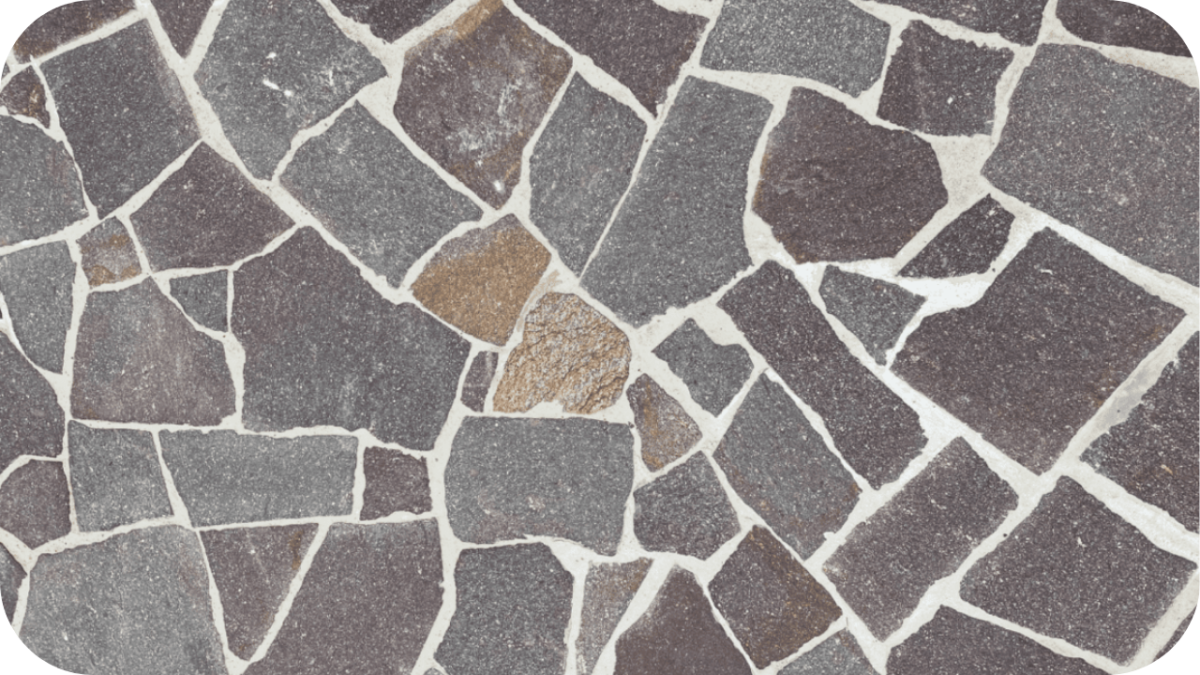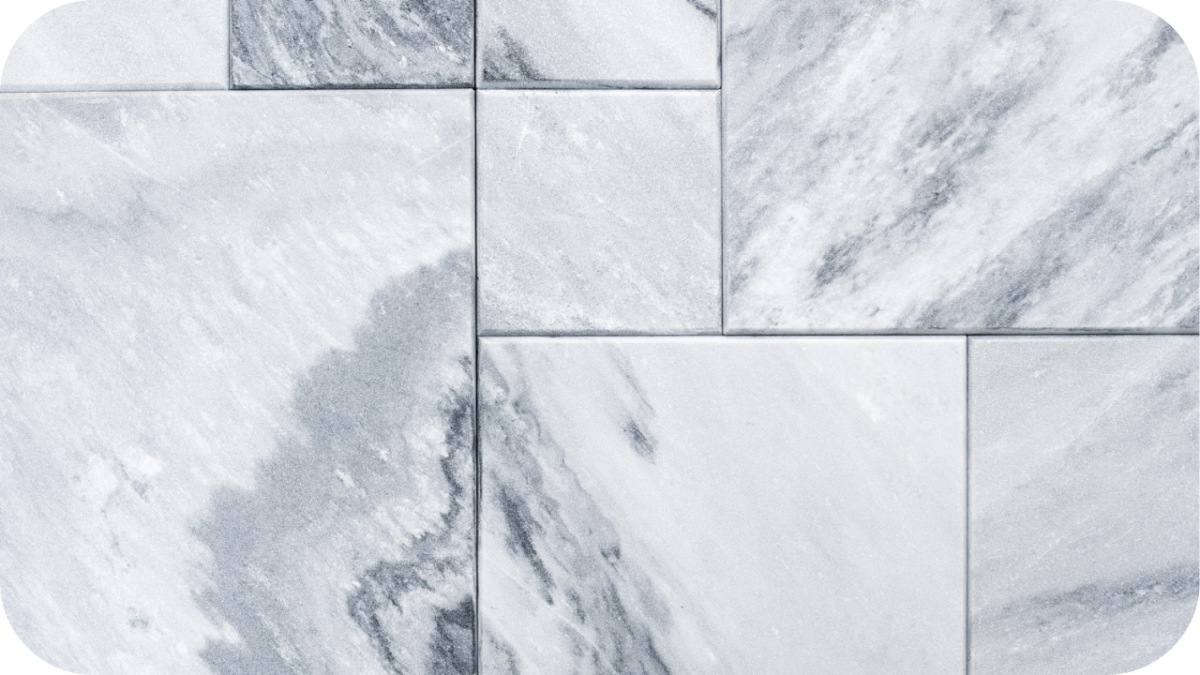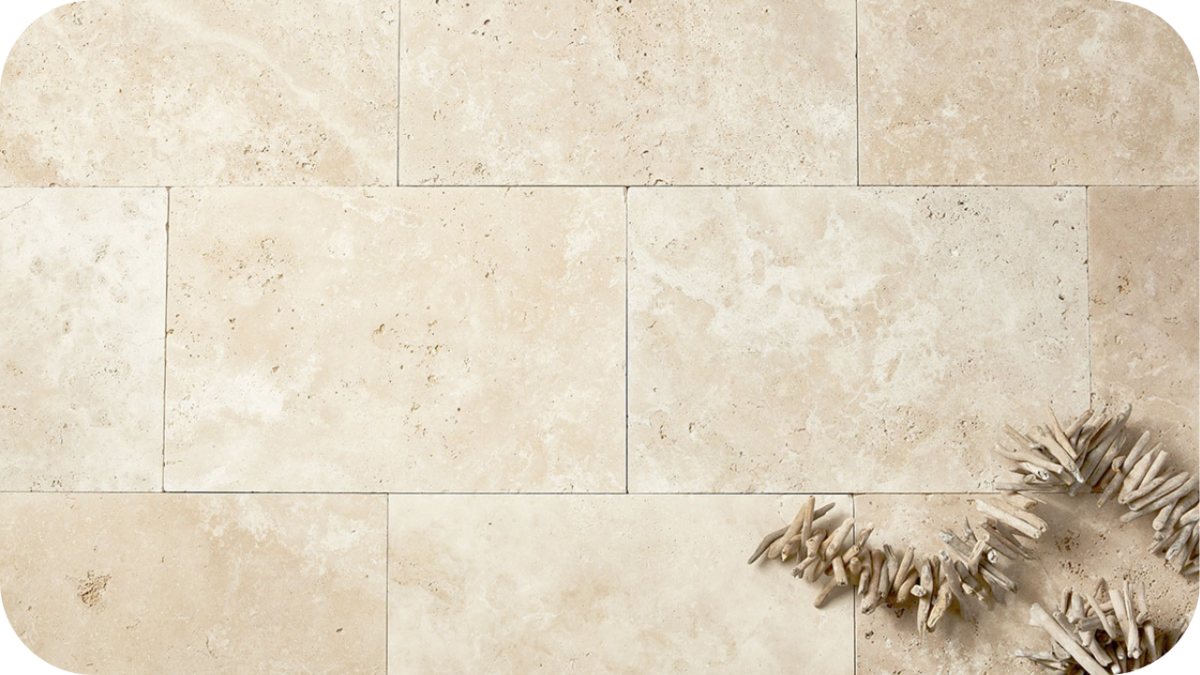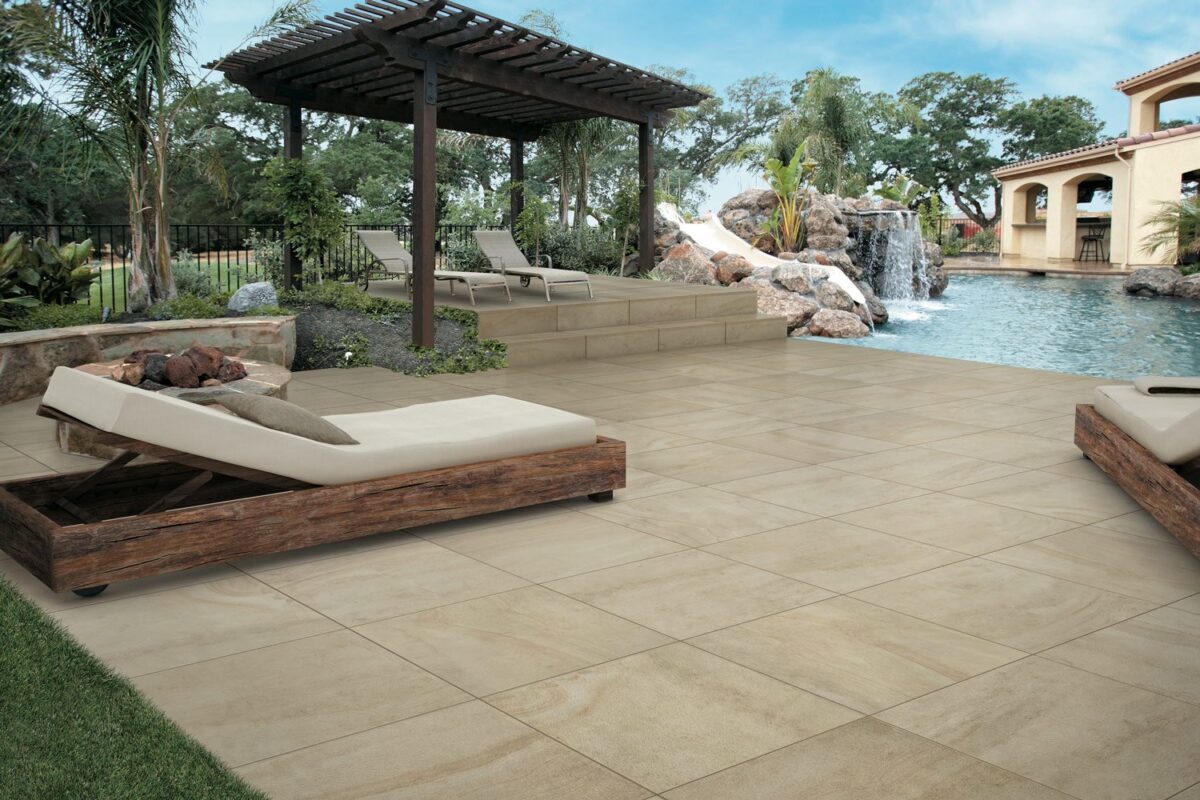What is Porphyry?
Porphyry is a durable and visually striking igneous rock, often used in both heritage and modern paving applications. Renowned for its strength and aesthetic appeal, porphyry is ideal for high-traffic areas such as driveways, public walkways, and commercial landscapes.
With its dense texture, natural traction, and ability to withstand harsh weather conditions, porphyry offers both functional and decorative benefits.
The stone’s unique colour variations and long-lasting nature make it an excellent choice for creating timeless outdoor spaces that require minimal upkeep and continue to look great over time.
What is Porphyry?
Porphyry is an igneous rock formed from slow-cooling magma deep underground. It features large mineral crystals (phenocrysts) embedded in a fine-grained matrix, which gives it its unique appearance. Exposed through volcanic activity and erosion, porphyry is valued for its strength, aesthetic appeal, and durability, making it a popular choice in paving and landscaping projects.
Key Characteristics of Porphyry
Porphyry is recognised for its distinct texture, strength, and natural colour variations. Here’s what makes this stone unique and valued in paving projects.
1. Distinctive Granular Texture
Porphyry is known for its granular texture, featuring large mineral crystals (phenocrysts) embedded in a fine-grained matrix. This gives the stone a visually appealing, variegated appearance, with a rough surface that adds character to any space.
2. High Density and Strength
Porphyry has a high density and exceptional strength, making it suitable for heavy-duty applications. This characteristic ensures the stone can withstand substantial wear and pressure, which is why it’s often used in high-traffic areas.
3. Natural Traction
The rough, textured surface of porphyry provides natural traction, making it ideal for outdoor paving. Even when wet, its texture helps prevent slipping, offering a safer surface for pedestrians in various settings.
4. Weatherproof and Durable
Porphyry is resistant to harsh weather conditions, including frost, UV exposure, and salt. Its natural durability ensures it can withstand environmental elements, making it suitable for both indoor and outdoor applications, even in extreme climates.
5. Earth-Toned Colour Range
Porphyry comes in a range of earth-toned colours, including grey, brown, red, purple, and green. These tones give the stone a natural, rustic appearance, adding to its versatility and aesthetic appeal in various settings.
Porphyry Forms: Unique Shapes and Finishes for Every Application
Porphyry is available in various forms and finishes, each providing unique aesthetic appeal and functionality. These options ensure the stone seamlessly integrates into various paving and landscaping designs.
1. Filetti Porphyry
Filetti Porphyry consists of small, rectangular or linear pieces of stone, ideal for detailed patterns and borders. It is often combined with a natural split or tumbled finish, seamlessly complementing both modern and traditional designs.
2. Cobbles Porphyry
Cobbles Porphyry is composed of irregular, rounded stones, often used for creating charming, rustic pathways or streetscapes. Available in finishes such as natural split or sawn, it provides a durable yet aesthetic solution for outdoor applications.
3. Crazy Porphyry
Crazy Porphyry refers to irregularly shaped pieces, perfect for a natural, unstructured look. It is often paired with a flamed or honed finish, offering a unique, seamless appearance in more rustic or organic paving designs.
4. Porphyry Kerbs
Porphyry Kerbs are used to create borders and edging for paved areas, providing both structural support and a clean, defined look. Typically available in natural split or sawn finishes, they help define spaces and maintain the integrity of the paving.
Common Applications of Porphyry
Porphyry is a versatile stone used in a wide range of paving and landscaping applications. Its durability and aesthetic appeal make it perfect for various residential, commercial, and public projects.
1. Driveways and Courtyards
Porphyry is an excellent choice for driveways and courtyards due to its strength and resistance to wear. Its textured surface provides excellent traction, making it safe for vehicles and pedestrians in high-traffic areas.
2. Public Paving and Walkways
Porphyry is commonly used in public spaces like laneways, streetscapes, and council projects. Its durability, low maintenance, and natural appearance make it ideal for creating long-lasting and visually appealing walkways that withstand heavy foot traffic.
3. Stepping Stones and Outdoor Paths
For garden paths or stepping stones, porphyry offers a robust, attractive solution. Its natural colours and varied finishes, such as tumbled or honed, blend seamlessly with outdoor landscaping, providing both beauty and function.
4. Patio Paving
Porphyry is a popular choice for patio paving, providing a solid, durable surface that withstands outdoor conditions. Available in various shapes and finishes, it enhances the aesthetic appeal of any outdoor living space.
5. Commercial Landscapes
In commercial areas, porphyry is a popular choice for plazas, hotel walkways, and hospitality spaces. Its elegant appearance, combined with excellent durability, makes it a great material for high-traffic areas that need both beauty and practicality.
Why Choose Porphyry? Benefits for High-Performance Paving
Porphyry is a highly durable, aesthetically appealing stone that’s perfect for high-performance paving. Here’s how this natural stone enhances both functionality and design in outdoor spaces:
1. Extremely Durable and Long-Lasting
Porphyry is known for its exceptional durability, capable of withstanding heavy foot traffic and extreme weather conditions. Its dense composition ensures that it remains intact and reliable for years, making it perfect for high-traffic areas.
2. Low Maintenance and Resistant to Wear
Porphyry requires minimal maintenance due to its natural resistance to wear, abrasion, and staining. Regular cleaning and occasional sealing are all that’s needed to keep it looking great, making it a low-fuss choice for busy areas.
3. Colourfast and Ages Beautifully
Porphyry’s colours remain vibrant over time, even in harsh environments. Its natural colour palette, including tones of grey, brown, red, and purple, ensures that it ages beautifully and continues to enhance outdoor spaces for years.
4. Timeless Aesthetic for Outdoor Spaces
With its natural, earthy tones and texture, porphyry adds timeless beauty to outdoor spaces. It complements both traditional and contemporary designs, offering a sophisticated look that stands out and adds character to any project.
5. Sustainable and Environmentally Friendly
Porphyry is a natural stone that requires minimal environmental processing. Its durability reduces the need for replacements, making it an eco-friendly choice for sustainable paving solutions that last longer and reduce the environmental impact of frequent repairs.
Maintenance and Care for Porphyry
Porphyry is low-maintenance due to its durability, but proper care is still needed to ensure it remains in excellent condition. Follow these essential tips to keep your porphyry surfaces looking great for years.
- Seal Porphyry When Necessary: While porphyry is naturally resistant to moisture, applying a sealant periodically (every 3-5 years) will help preserve its appearance and protect it from staining or water damage.
- Clean Regularly with Mild Detergents: Sweep or vacuum regularly to remove dirt and debris. Wash the surface with a mild detergent and water to avoid abrasive damage or the buildup of grime.
- Avoid Harsh Chemicals: Refrain from using harsh or acidic cleaners that can erode the stone’s surface. Stick to pH-neutral cleaners that are safe for natural stone and prevent damage to the finish.
- Blot Spills Quickly: Immediately blot spills, especially from acidic substances like wine or citrus, to prevent staining. Use a soft cloth to avoid spreading the liquid and causing further damage to the surface.
- Reapply Sealer Every 5–7 Years: If you’ve used a sealer, reapply it as part of your regular maintenance schedule to ensure continued protection against moisture and dirt. Follow the manufacturer’s recommendations for the best results.
- Inspect for Damage: Regularly inspect your porphyry surfaces for signs of damage, such as cracks or chips. Early detection will allow you to address these issues before they become more serious.
Conclusion
Porphyry is a durable, low-maintenance stone ideal for a wide range of paving applications. Regular care, including sealing, cleaning, and prompt spill management, helps maintain its beauty and longevity.
For expert advice, high-quality porphyry, and professional installation, visit Splendour in Stone to find the perfect solution for your paving needs.






